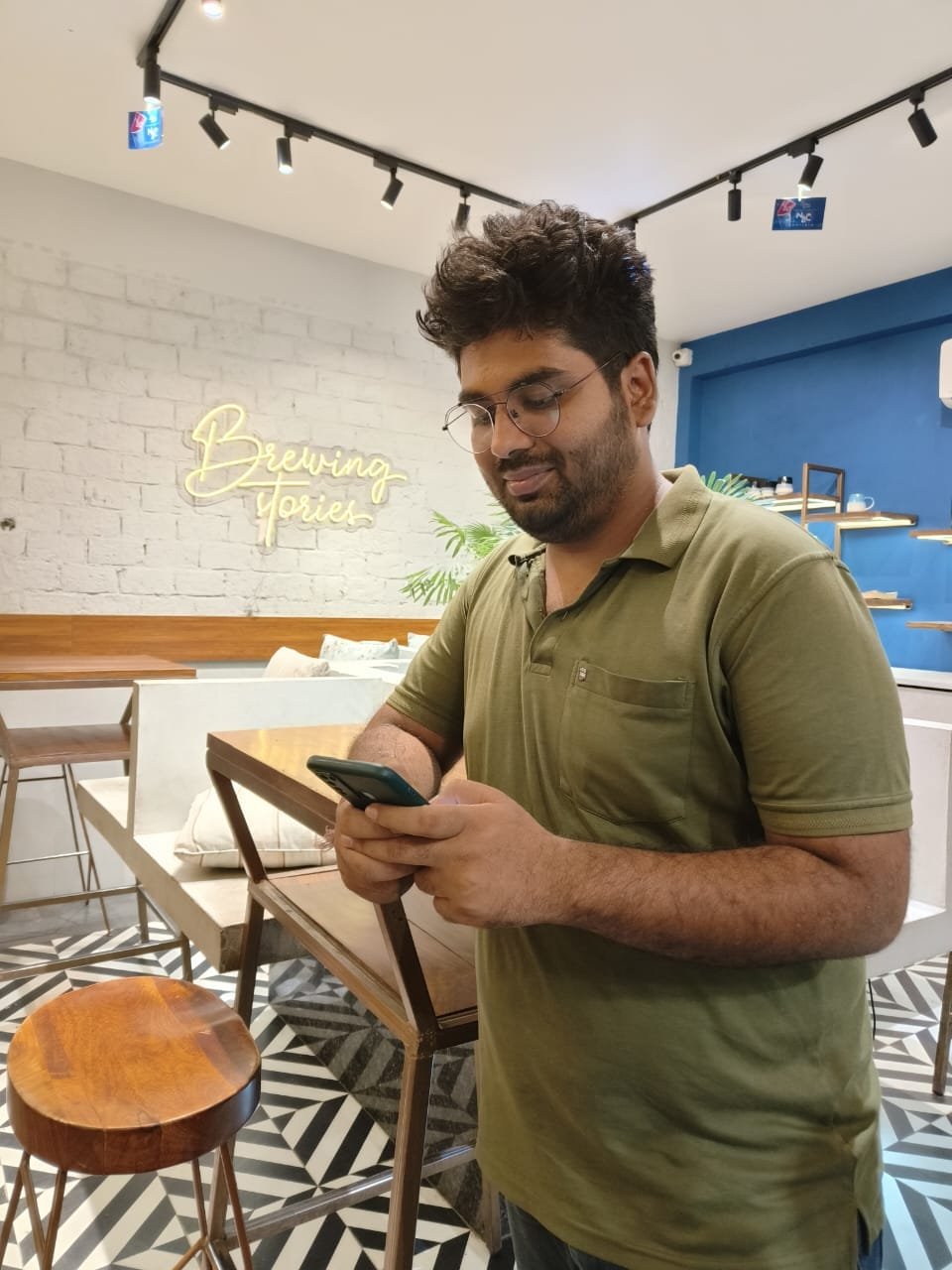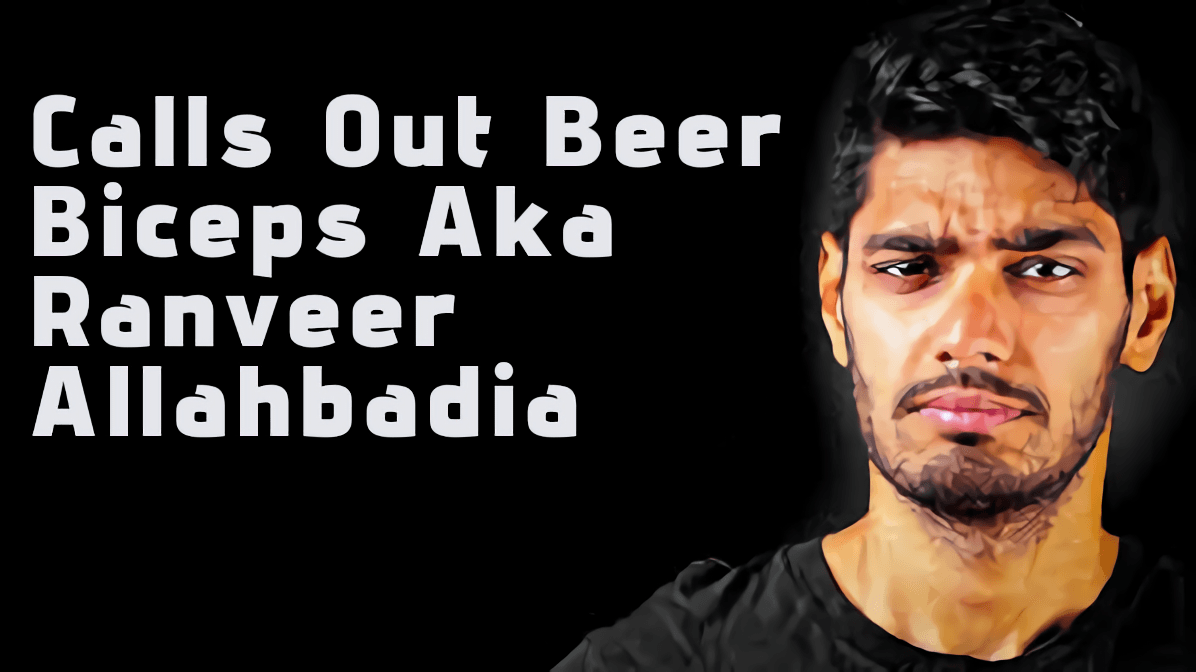With honors for his performances in films like Gully Boy and the forthcoming Kho Gaye Hum Kahan, Siddhant Chaturvedi has become somewhat well-known in the Indian film scene.
Both viewers and critics have come to favor him based on his dynamic on-screen character and adaptability. Beyond his cinematic career, though, Chaturvedi has also interacted with other digital entertainment channels including shows housed on YouTube.
One such involvement: his presence on India’s Got Latent has had the Maharashtra Cyber Police much interested.
Following an unpleasant remark asked by YouTuber and podcaster Ranveer Allahbadia that caused general outcry, a debate on the show exploded in February 2025.
Following several police complaints and an official investigation stemming from the incident, officials looked at every person who had ever been connected to the show—including Chaturvedi.
Although his involvement on India’s Got Latent was several months before the controversy, the continuous legal investigation begs issues about the degree of responsibility in digital content and the wider consequences for celebrities using such platforms.
Understanding the Controversy: What Happened on “India’s Got Latent”?
Based on YouTube, India’s Got Latent is a talent program with unvarnished, often irreverent approach that attracted popularity.
Unlike conventional talent contests, the show flourished on edgy humor, direct feedback, and a laid-back tone appealing to younger viewers looking for a substitute for mainstream reality TV.
Comedian Samay Raina hosted the show, which had a rotating panel of guest judges included well-known entertainment business people.
When well-known YouTuber and podcaster Ranveer Allahbadia visited as a guest judge in February 2025, the dispute that resulted in legal action sprang forth.
“Would you rather watch your parents have sex every day for the rest of your life or join in once to stop it?” he questioned a competitor in an improper and nasty question during an episode.
People reacted instantly angrily at this comment. Critics inundated social media with comments, calling the inquiry nasty and violating moral standards.
Public reaction grew more strong, resulting in several police complaints directed against performance producers and performers.
The Maharashtra Cyber Police thus registered a FIR against all those connected to India’s Got Latent, including hosts, judges, competitors, and organisers.
Along with pertinent clauses of the Bharatiya Nyaya Sanhita, the charges were registered under Section 67 of the Information Technology Act, which addresses the distribution of obscene information in electronic form.
Authorities widened their inquiry to cover all show episodes given the seriousness of the allegations, including prior participants—even those who had no involvement in the contentious incident.
Involvement of Siddhant Chaturvedi in the Show
Long before the February 2025 debate broke out, Siddhant Chaturvedi showed up on India’s Got Latent in July 2024.
During his guest stint, he shared the judging panel with rapper Badshah, engaging in funny exchanges and evaluating contestants in keeping with the show’s informal and enjoyable tone.
His episode was largely well-received, and at the time, there were no complaints or concerns lodged over its content.
But once the debate around Ranveer Allahbadia attracted legal interest, officials decided to go back over the whole catalogue of the programme.
Chaturvedi’s episode was replayed as part of this process, and he was summoned for interrogation along with roughly thirty to forty other people connected to various episodes of India’s Got Latent.
Notable personalities on this list included actor Rakhi Sawant, comedian Tanmay Bhat, internet celebrity Uorfi Javed, and several other guest performers.
Authorities defended Chaturvedi’s inclusion in the inquiry as part of a thorough examination into the content and monitoring systems of the broadcast, even though his involvement lacked any comments or acts akin to Allahbadia’s disrespectful question.
Mumbai Traffic Joke: A Case of Overreach?
One particular episode from Chaturvedi’s that came back to me during the review was a contestant’s stand-up comedy performance on Mumbai’s notoriously bad traffic.
The joke was a lighthearted exaggeration, jokingly contrasting the traffic problems of the city with an adventurous trip needing survival knowledge.
The joke was generally seen at the time of broadcast as a relevant critique on Mumbai’s urban life.
But in the wake of the scandal, some detractors started closely examining even apparently innocuous material, contending that such humor might support unfavorable impressions of the city.
Others said that this point of view was an overreach and underlined the need of maintaining comic expression free from too strong censorship.
While this particular joke did not lead to any formal complaints against Chaturvedi, its revival in conversations underscores the broader issues surrounding digital content regulation.
Examining India’s Got Latent has spurred a discussion on whether former show attendees should answer for unrelated controversies that surface afterward.
Legal Actions and Public Opinion
All summoned people, including Chaturvedi, have been obliged to provide statements detailing their involvement in the show as the Maharashtra Cyber Police widen their investigation.
The affiliation with the incident has nevertheless affected Chaturvedi’s public image even if some sources claim that the inquiry aims mostly to create a thorough record of the substance of the broadcast rather than punish all participants.
Effect on the career of Siddhant Chaturvedi
Siddhant Chaturvedi’s social media activity clearly has dropped following the summons. According to reports, his likes, comments, and shares online have plummeted about 10% since word of his summons leaked.
This shows that a part of his audience is reevaluating their support amid the ongoing scandal.
Chaturvedi’s core supporters, however, have come together behind him under stress that his presence on India’s Got Latent had nothing bearing on the offensive comments aired in the February 2025 episode.
On X (previously Twitter), the hashtag #SupportSiddhant trended momentarily; many people claimed he was being unfairly pulled into an issue he had no bearing on.
Industry Response and Broader Implications
The debate around India’s Got Latent has spurred conversations in the entertainment business on responsibility in digital production.
Should all prior participants of a show be held accountable for its controversies, even if they were not directly involved? Platforms like YouTube allow for more experimental and unvarnished formats, which begs this topic.
Many business leaders have denounced what they see to be an aggressive crackdown. Particularly comedians have voiced worries on growing limitations on humor and the possible chilling effect on artistic expression.
While controlling objectionable material is crucial, some have noted that assigning former actors responsibility for unrelated events creates a troubling precedent.
Managing Responsibilities in Digital Entertainment
Unintentional entanglement of Siddhant Chaturvedi in the India’s Got Latent debate highlights the changing difficulties of responsibility in the digital entertainment scene.
While his involvement in the event was independent from the February 2025 incident, the retrospective investigation emphasizes the unforeseen repercussions of participating in informal, digital-first content platforms.
Chaturvedi’s professional path will rely on his and his team’s handling of the circumstances as the research goes on.
Although the summons might momentarily affect his reputation, industry goodwill and devoted fans point to his long-term reputation remaining unbroken.
Rising important issues about oversight, responsibility, and the delicate balance between creative freedom and ethical limits in the always growing world of online entertainment,
the India’s Got Latent case acts as a warning story for digital content creators, celebrities, and platforms both alike.
Stay Connected and Share Your Stories
For all those inspired by stories of resilience and ambition, follow us on X/Twitter and on Instagram . For those with untold stories that you would love to share, please send them to contact@thephilox.com




